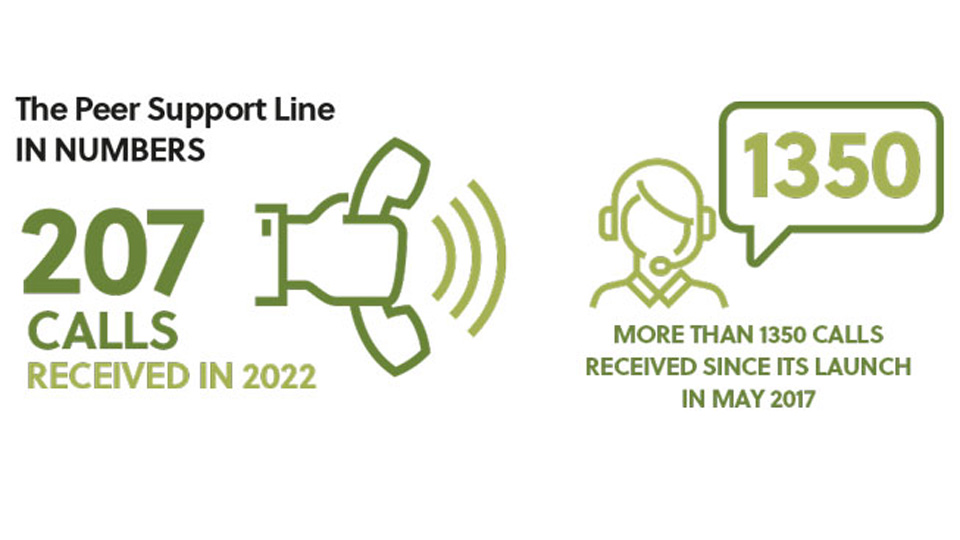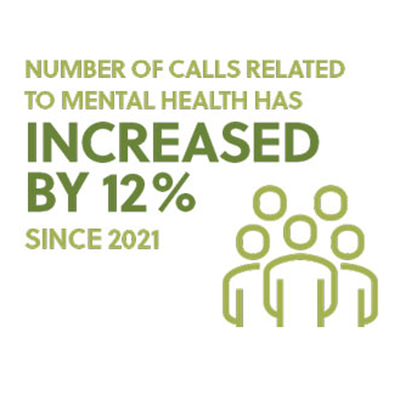- OT
- Professional support
- AOP
- Peer Support Line from the AOP
Peer Support Line from the AOP
The AOP’s Peer Support Line is designed to support members at all career stages

01 May 2023
In 2022, volunteers of the AOP’s confidential, free-phone Peer Support Line received 207 calls. Launched in May 2017, the service, which is available to members and non-members, will mark its sixth anniversary next month. Since launching, it has received over 1350 calls from practitioners looking for a safe space to discuss any problems they may be experiencing.
Averaging over 17 calls per month last year, the three main reasons given for calling for support were: mental health (27%), employment (17%), and stress (16%). The service aims to provide practitioners at any stage of their optical career, including students, with the opportunity to talk with a trained, empathetic peer who recognises the pressures of optical practice. Those accessing the service for mental health reasons has increased substantially 2021 when it accounted for 15% of calls, up 12%.

What is the Peer Support Line?
Speaking to one of the AOP’s 36 Peer Support Line volunteers enables practitioners to talk through their problems in a dedicated non-judgemental space. Volunteers are trained AOP members who will not give advice, but will offer other possible sources of support and, where relevant, help callers to reach a resolution or take action. Importantly, the volunteers understand the benefits of having someone listen who is impartial and has no personal agenda.
Calls can be on a range of issues, including workplace pressure, bullying, ill health, financial worries, bereavement, or anxiety about exams. No issue is too small or too trivial.
Calls are completely anonymous and only a first name or alias will be requested.
Views from a volunteer

She explained that the volunteers to the line are experienced optometry professionals, which is “an added bonus” as “we really understand when they mention and talk about clinical things.”
The volunteer told OT that listening is vital, before they can then discuss the options available to caller: “We don’t give advice, but if necessary we sign post the callers. It is a discussion for the caller to give them a safe space to talk.”
“We’re there to listen, and to show empathy, and be compassionate to people who need it,” she added.
Feedback
“My peer support representative was absolutely amazing – so kind and lovely.”
Anon practitioner who used the line
The number
Call 0800 870 8401. Calls are answered 24 hours a day by an external answering service, with volunteers on duty to return calls between 8am and 8pm.


Comments (0)
You must be logged in to join the discussion. Log in